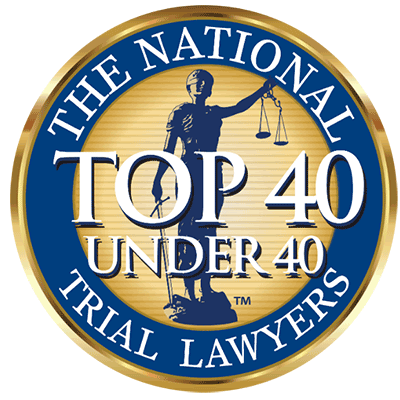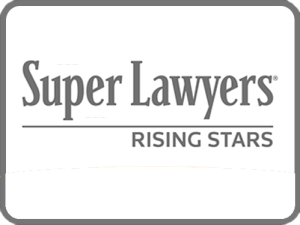Distracted driving accidents are frustrating because they are so preventable. Instead of paying attention to the road, too many motorists glance at their phones, reach for spilled coffee, or check their makeup in the mirror. It only takes a few seconds of distraction to cause a motor vehicle collision that results in severe injuries, disability, and even wrongful death.
If you were hurt in a crash caused by a distracted driver, you can file an insurance claim for your medical bills, lost wages, property damage, and more. But the truth is that insurance companies rarely play fair. They’ll question your injuries, stall the legal process, and try to push a lowball settlement before you even know the full extent of your injuries. That’s where an experienced distracted driving accident lawyer can help.
Why Hire Us for Your Distracted Driving Claim?
Not every Indiana law firm handles distracted driving cases the same way. At Habig Injury Law, we approach each case with a sharp focus and a client-first mindset. You’re not just a file or a claim number: you’re someone whose life was disrupted by a careless act, and our job is to help make things right for you.
Here’s what sets our firm apart:
- We Understand How Distracted Driving Cases Work: Distracted driving cases often look simple on the surface, but proving the driver was distracted at the exact moment of impact takes skill. We know how to secure phone records, gather witness testimony, and work with accident reconstruction experts when needed.
- You Work Directly With Your Attorney: When you hire Habig Injury Law, you’re not passed off to a case manager or junior staffer. You’ll work directly with skilled attorneys who bring years of experience and hands-on insight into every car accident claim they handle.
- We Move Fast to Preserve Evidence: Phone logs can be deleted. Dashcam footage can be overwritten. Witnesses forget. The sooner we’re involved, the faster we can lock in the proof needed to support your case and push the insurance company to take it seriously.
- We Know How Indiana Courts View Distracted Driving: Indiana judges and juries take distracted driving seriously, especially when devastating injuries are involved. We use this to your advantage when presenting your case and pushing for maximum compensation.
- We Prepare Every Case as If It’s Going to Trial: Most cases settle, but we don’t bank on it. We build every case from day one with courtroom strategy in mind. That pressure often leads to better settlements, and if trial becomes necessary, we’re ready.
- You Don’t Pay Unless We Win: We handle distracted driving accident cases on a contingency basis. That means there are no upfront fees and you only pay if we recover money for you.
What Compensation Can You Get in a Distracted Driving Claim?
If a distracted driver caused your motor vehicle accident, you may be entitled to fair compensation, but the final amount isn’t automatic, and it doesn’t come from a formula. It depends on several factors, the most important of which are highlighted below:
- The Extent of Your Injuries: Minor injuries typically result in lower settlements. But if you suffered a traumatic brain injury, broken bones, spinal cord damage, or any condition requiring surgery or long-term rehab, your case value increases. Serious injuries usually mean longer recovery times, more time off work, and a deeper emotional toll.
- The Impact on Your Ability to Work: If the injury caused you to miss work, forced a career change, or affected your ability to earn a living long-term, that loss is factored into the claim. A single missed paycheck is one thing: losing your livelihood is something else entirely.
- Total Medical Expenses: Your financial compensation should cover all past, current, and future treatment costs. That includes emergency care, follow-up visits, diagnostic tests, prescription medications, physical therapy, surgeries, or mobility aids. If your injury requires ongoing or lifetime care, those future costs are calculated into your claim.
- Proof of the Other Driver’s Distraction: Solid evidence, such as cell phone records, dashcam footage, or credible witness testimony, makes your claim stronger and puts pressure on the insurance company to settle. Without strong proof, expect more pushback.
- Your Own Level of Fault: Indiana follows a modified comparative fault rule. If you’re found partially responsible for the accident, your compensation is reduced by your percentage of fault. If you’re 51% or more at fault, you may not recover anything at all. That’s why evidence and legal strategy matter.
- The Insurance Coverage Available: Compensation is also limited by the at-fault driver’s insurance policy. If their coverage is minimal, your car accident attorney may need to explore other sources, such as your own underinsured motorist policy or additional liable parties.
Common types of compensation in distracted driving cases include:
- Medical Expenses: ER visits, ambulance fees, hospital stays, surgeries, specialist visits, rehab, prescriptions, and projected future care.
- Loss of Income: Wages lost due to time off work, missed shifts, or inability to perform job duties. Long-term claims may also include reduced earning capacity if the injury affects your future income.
- Property Damage: Costs to repair or replace your vehicle, along with personal items damaged in the distracted driving crash.
- Pain and Suffering: Compensation for physical pain, emotional stress, anxiety, PTSD, sleep disruption, or depression related to the accident and injury.
- Permanent Disability or Disfigurement: If the crash caused scarring, loss of mobility, amputation, or another lasting impairment, that factor increases the overall value of your claim.
- Loss of Enjoyment: If your injury prevents you from doing things you once enjoyed (like playing sports, caring for family, or pursuing hobbies) you can be compensated for that loss as well.
No two cases are the same, and no online calculator can tell you what your claim is truly worth. At Habig Injury Law, we don’t guess: we calculate. We look at the full picture, account for every loss, and fight for a result that reflects what you’ve actually endured.
What Can You Do if the Distracted Driver Fled the Scene?
If the at-fault driver fled the scene (also known as a hit and run), call the police immediately. A crash report triggers an official investigation, and in many cases, officers can locate the driver using surveillance footage, witness accounts, or license plate information.
Next, check your own insurance policy. If you have uninsured motorist (UM) coverage, it may cover your injuries and damages even if the other driver isn’t found. Then call a distracted driving lawyer right away. Hit-and-run cases require fast action. A personal injury attorney can coordinate with law enforcement, track down witnesses, review traffic cam footage, and help file claims under your own policy if needed.
Do You Need a Lawyer for Your Personal Injury Lawsuit?
Technically, no. Legally, you’re allowed to file a personal injury claim on your own. But should you? Probably not, and here’s why.
These claims may seem straightforward at first, especially if the other driver was clearly texting or admitted fault at the scene. But the moment the insurance company gets involved, the tone can change quickly. Claims adjusters are trained to minimize payouts, and they’ll look for any angle to reduce or deny your legal claim.
They might argue your physical injuries were pre-existing, even if they weren’t. They could claim the traffic accident wasn’t as serious as you say or that your symptoms are exaggerated. If there were multiple vehicles involved, they might try to shift blame to another driver or even onto you, knowing that shared fault in Indiana can reduce your compensation or eliminate it altogether.
That’s just the beginning. Insurance companies have legal teams, medical consultants, and claims analysts on standby. Their job is to protect company profits. That means scrutinizing every detail of your medical history, downplaying your pain, and dragging out the process in hopes you’ll settle for less or give up entirely.
An experienced distracted driving attorney steps in and levels the playing field by:
- Gathering the right evidence at the right time. That includes police reports, cell phone records, dashcam footage, traffic camera data, witness statements, and expert analysis.
- Calculating a full and accurate value of your monetary damages. It’s not just about medical bills. Your claim should reflect lost income, long-term treatment needs, pain, emotional distress, and how the injury has impacted your life.
- Pushing back on lowball offers. Insurance adjusters often start with an offer that doesn’t even come close to covering your costs. A personal injury lawyer knows how to challenge these offers and negotiate for a settlement that’s actually fair.
- Preparing your case for trial from the beginning. If the insurer won’t negotiate in good faith, your accident lawyer will be ready to take the case to court, with a strong file already built.
- Managing the legal side while you recover. The legal process can be stressful and time-consuming, but an experienced attorney handles the deadlines, paperwork, and pressure while you heal.
The reality is that distracted driving cases aren’t always easy to prove, especially if the negligent driver denies being distracted or there’s no obvious phone use on record. Without legal guidance, key evidence can be missed, claims can get delayed, and your final settlement may not reflect the real cost of what you’ve gone through.
Indiana Distracted Driving Laws: An Overview
Indiana law prohibits the use of handheld mobile devices while driving. Under Indiana Code § 9-21-8-59, drivers are not allowed to hold or operate a phone unless it’s via hands-free technology. The law applies to all drivers, regardless of age or license type.
Distracted driving falls into three main categories:
- Visual Distraction: Taking your eyes off the road (e.g., reading a text)
- Manual Distraction: Taking your hands off the wheel (e.g., eating, grooming, taking a phone call)
- Cognitive Distraction: Taking your mind off driving (e.g., daydreaming, deep conversation)
Texting while driving is particularly dangerous because it involves all three types at once. According to one government study, distracted driving was a contributing factor in over 10,000 motor vehicle crashes across the state in 2022. Despite its prevalence, proving distraction isn’t always straightforward. Knowing where to look, what to request, and how to build a case around distracted behavior can be the difference between a denied claim and a successful recovery.
What to Do After a Car Accident
If you were involved in a crash and suspect the other driver was distracted, what you do in the moments and even days after the accident matters. Here’s what we recommend:
- Call 911 immediately: Even if the damage seems minor, always call the police. An official accident report creates a record of what happened and may include observations about driver behavior, cell phone use, or statements made at the scene.
- Document Everything: Take photos of the accident scene, vehicle damage, road conditions, weather conditions, skid marks, and traffic signals. Get the names and contact information of any witnesses. If you saw the other driver holding a phone or other electronic device, make a note of the time and what you saw.
- Get Medical Attention: Even if you don’t feel seriously injured, get checked out. Some accident injuries, like concussions or soft tissue damage, may not appear right away. Medical records also play a key role in your claim, so you want yours to be as thorough as possible.
- Don’t Talk to the Other Driver’s Insurance Company: They may call quickly, asking for a statement, but don’t give one without legal advice. These calls are intended to protect their interests, not yours.
- Contact a Distracted Driving Accident Lawyer: The earlier you involve legal counsel, the stronger your position. A distracted driving lawyer can help preserve evidence, secure phone records, and guide you through the preparation and filing of your insurance claim.
Get a Free Consultation From an Indiana Distracted Driving Lawyer
A distracted driver made a bad choice, but you’re the one paying for it. At Habig Injury Law, we take these cases seriously because we’ve seen what’s at stake. We move quickly, build strong claims, and fight to get our clients what they’re owed. No delays, no runaround: just direct, results-focused representation. For more information or to schedule an initial consultation with a distracted driving accident attorney, contact our law firm today.
What Habig Clients Are Saying…
What Habig Clients Are Saying…

OUR APPROACH TO CAR ACCIDENT CASES
At Habig Injury Law, we strive to settle car accident injury claims without filing a lawsuit. However, insurance companies often offer unreasonably low settlements. If a fair offer cannot be reached, we will file a lawsuit to pursue the compensation you deserve. While most cases are settled before reaching trial, we are fully prepared to take your case to trial to achieve the best possible outcome.
Contingency Fee Basis
Our car accident injury lawyers operate on a contingency fee basis, charging a percentage of the settlement or verdict obtained for your claim. Typically, this fee is 33.3% in car accident cases. If we do not secure a settlement or verdict, you owe us nothing. There is no financial risk in contacting a personal injury attorney at Habig Injury Law.
Contact Us Today
If you’ve been injured in a car accident, don’t wait to seek the help you need. Contact Habig Injury Law in Greenwood and Bloomfield, Indiana, for a free consultation and let us support you on the path to recovery. It’s as easy as filling out the form below and one of our attorneys will reach out to you get started.



